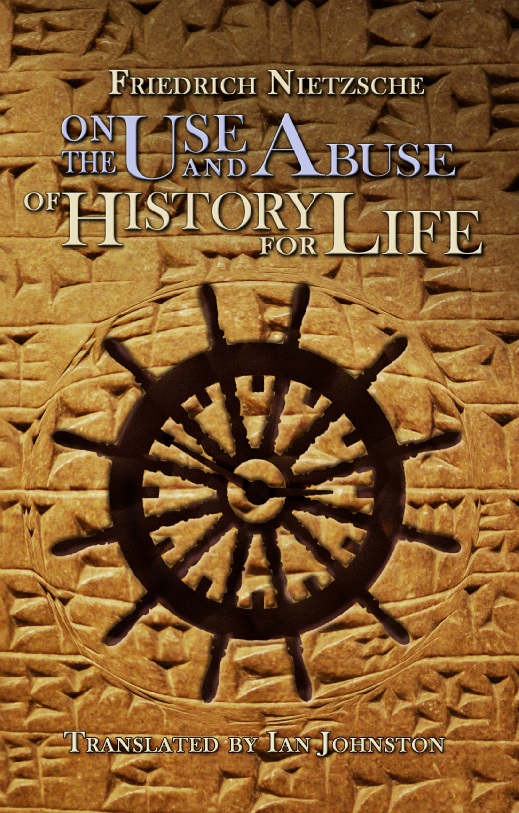Questions? Call us
toll free:
1-800-856-3060
At Richer Resources, we are dedicated to the creation of high quality books, art and other media intended to enrich the lives of individuals of all ages.
As an independent publisher, we are bound by a sense of integrity and quality to produce products which enhance the lives and vision of individuals everywhere.
Sign up to receive notice of free eBooks, new releases and special subscriber-only offers.
(You can unsubscribe at any time)
Classics/ Philosophy ISBN:
978-1-935238-77-5
USD $8.95
Translated by Ian Johnston
“We wish to serve history only insofar as it serves living. But there is a degree of doing history and valuing it through which life atrophies and degenerates. To bring this phenomenon to light as a remarkable symptom of our time is now every bit as necessary as it may be painful.” With these words Friedrich Nietzsche, the revolutionary German philosopher, launches a frontal assault on the modern historical scholarship of his age. That scholarship, which prides itself on its objectivity and its ruthless enquiry into the facts, Nietzsche argues, undermines life, because it destroys our confidence in our own culture, our instincts, and our ability to live meaningful lives. We end up knowing all there is to know about our past, but losing contact with the emotionally meaningful value of that past. With so much knowledge we can have no horizon of significance, no moral frame of reference, because everything is dissolved into an infinite sea of becoming, and the most important elements of our lives become subservient to historical scholarship instead of the other way around. The best solution for this acute problem is a new generation of young people who will use history to expose its dangers and who will re-establish the priorities which serve life, by putting human beings in charge of history and no longer allowing a perverse mania for scientific knowledge to corrupt cultures and individuals.
Ian Johnston’s new translation of this famous essay captures the
clarity, energy, and urgency of Nietzsche’s challenge to the culture of
his time, a challenge every bit a pertinent today as when it first
appeared.
